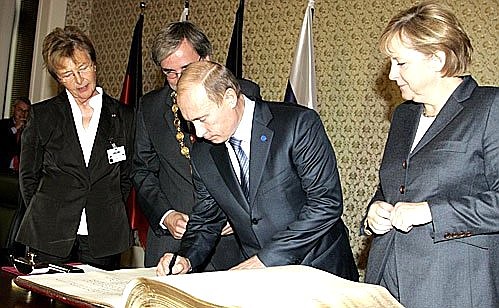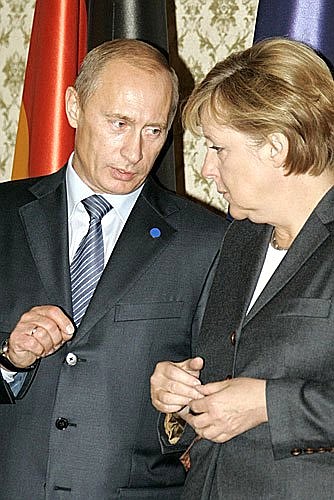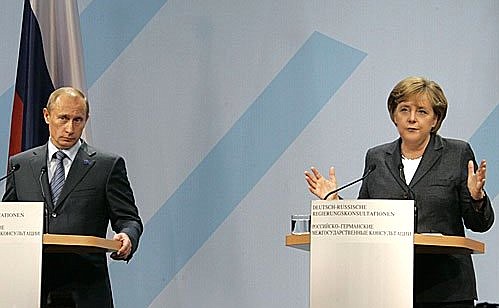Russia and Germany have been holding consultations in this format in alternating venues in both countries every year since 1998.
Russia was represented by 13 government ministers and agency directors at the talks: Sergei Lavrov, Alexei Kudrin, Dmitry Kozak, Igor Levitin, Elvira Nabiullina, Rashid Nurgaliev, Anatoly Serdyukov, Yury Trutnev, Vladimir Ustinov, Viktor Khristenko, Andrei Fursenko, Alexander Sokolov and head of Rosatom Sergei Kiriyenko.
Germany was represented by the heads of 11 government bodies.
At the top of the consultations’ agenda were bilateral economic relations, especially the issues of diversifying economic ties, stimulating investment, carrying out national projects and developing production and scientific-technical cooperation in high-technology sectors.
An exchange of views on current international issues also took place. Mr Putin and Mrs Merkel gave a lot of attention to the U.S. plans to deploy parts of a missile defence system in Europe, the situation regarding the Conventional Forces in Europe Treaty, the Iranian nuclear programme and global and European energy security. Also discussed were regional conflicts and the situation in the Middle East, the Balkans, Afghanistan and Iraq.
Attention was also given to the results and prospects for cultural and humanitarian cooperation between the two countries.
A number of bilateral agreements were signed in the presence of the two leaders at the intergovernmental consultations: an agreement between the Russian Education and Science Ministry and the German Education and Scientific Research Ministry on cooperation in the development and use of accelerator-based photon radiation sources; a declaration of intent between the Federal Atomic Energy Agency and the German Education and Scientific Research Ministry on cooperation in building and operating an international accelerator centre to study heavy ions and anti-protons (FAIR Project); a memorandum on the conclusion of a deal between RAO Unified Energy Systems of Russia, OGK-4 and E.ON Russia and Power; a protocol to the agreement between Russia and Germany of May 29, 1996, and the protocol to the agreement of May 26, 1996, on avoiding double taxation on income and property; and an agreement establishing twin city ties between the cities of Perm (Russia) and Duisburg (Germany).
Mr Putin and Mrs Merkel gave a joint press conference, at which the President assessed the intergovernmental consultations as having produced positive results.
Answering journalists’ questions, Mr Putin said that Russia has always supported using political and diplomatic means to resolve the Iranian nuclear issue. The President confirmed that he will attend the second Caspian summit.


